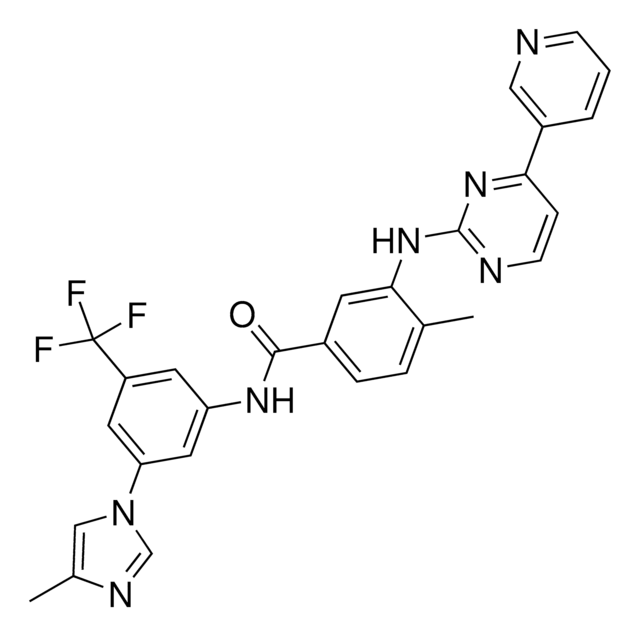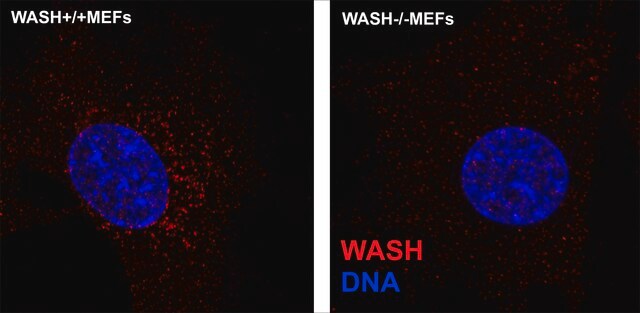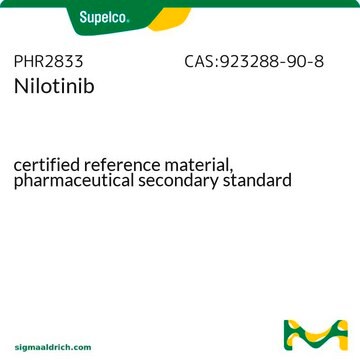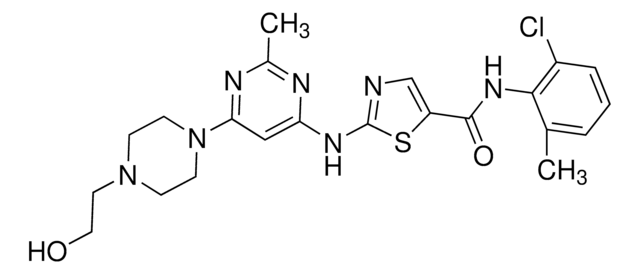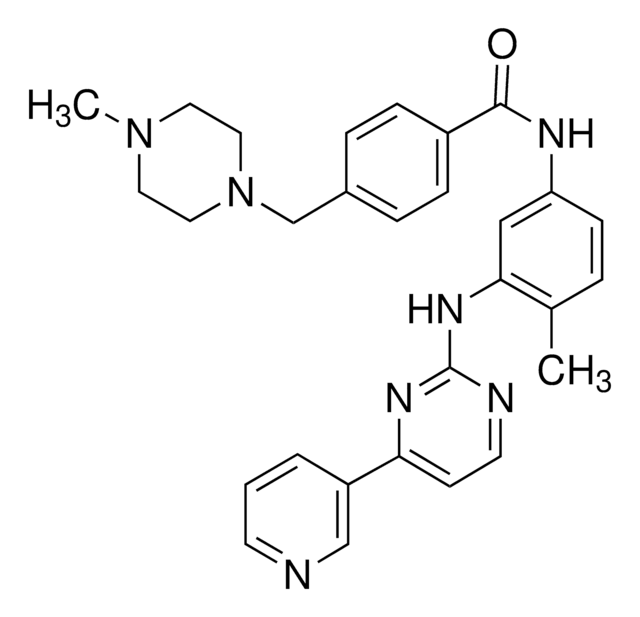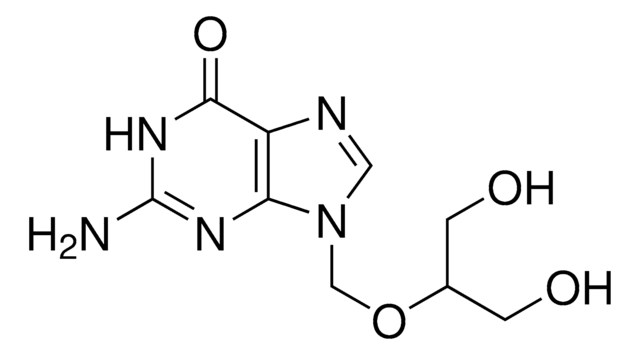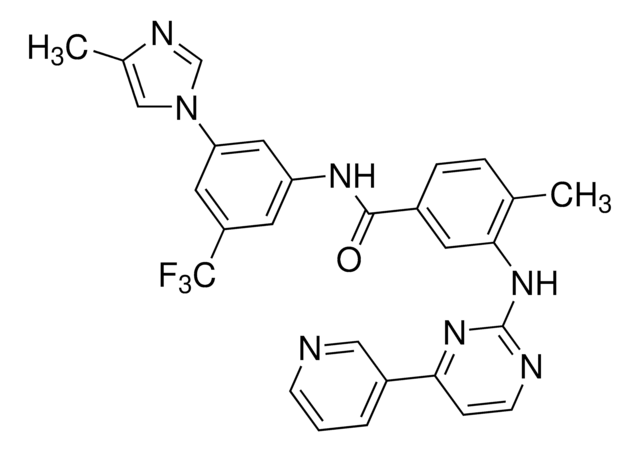SML3841
Nilotinib hydrochloride hydrate
≥98% (HPLC)
Synonym(s):
4-Methyl-N-[3-(4-methyl-1H-imidazol-1-yl)-5-(trifluoromethyl)phenyl]-3-[[4-(3-pyridinyl)-2-pyrimidinyl]amino]-benzamide hydrochloride hydrate, Nilotinib monohydrochloride monohydrate
About This Item
Recommended Products
Quality Level
assay
≥98% (HPLC)
form
powder
storage condition
desiccated
color
white to beige
solubility
DMSO: 2 mg/mL, clear
storage temp.
2-8°C
SMILES string
FC(F)(C1=CC(NC(C2=CC=C(C(NC3=NC=CC(C4=CN=CC=C4)=N3)=C2)C)=O)=CC(N5C=NC(C)=C5)=C1)F.Cl.O
InChI
1S/C28H22F3N7O.ClH.H2O/c1-17-5-6-19(10-25(17)37-27-33-9-7-24(36-27)20-4-3-8-32-14-20)26(39)35-22-11-21(28(29,30)31)12-23(13-22)38-15-18(2)34-16-38;;/h3-16H,1-2H3,(H,35,39)(H,33,36,37);1H;1H2
InChI key
YCBPQSYLYYBPDW-UHFFFAOYSA-N
Biochem/physiol Actions
Caution
signalword
Warning
hcodes
Hazard Classifications
Aquatic Acute 1 - Aquatic Chronic 1 - Repr. 2
Storage Class
11 - Combustible Solids
wgk_germany
WGK 3
flash_point_f
Not applicable
flash_point_c
Not applicable
Choose from one of the most recent versions:
Certificates of Analysis (COA)
Don't see the Right Version?
If you require a particular version, you can look up a specific certificate by the Lot or Batch number.
Already Own This Product?
Find documentation for the products that you have recently purchased in the Document Library.
Our team of scientists has experience in all areas of research including Life Science, Material Science, Chemical Synthesis, Chromatography, Analytical and many others.
Contact Technical Service